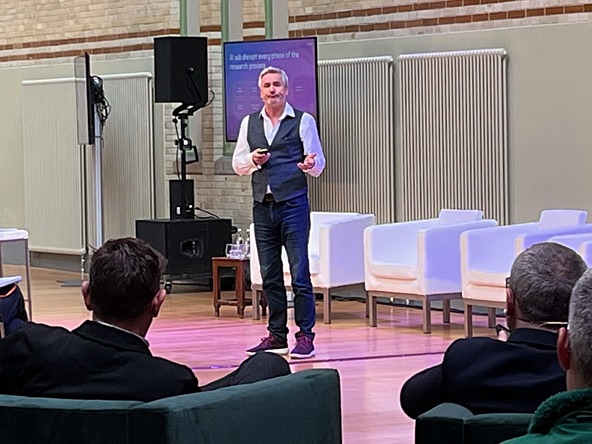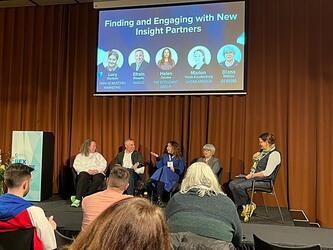Researchers risk losing their jobs if they fail to keep up with AI

Speaking at the IIEX Europe conference in Amsterdam on Tuesday, Phillips said that there was a “a large proportion of our industry who are ignoring this” when it comes to AI adoption, and warned that tools like ChatGPT would change the world.
“I honestly think that in 10 to 15 years’ time, the year 2022 will be known for one thing – it won’t be war in Ukraine, the energy crisis or inflation, it will be the birth of genuinely scalable AI,” Phillips said.
Phillips discussed ChatGPT by OpenAI, which launched last year as a large language model and which has generated significant amounts of news coverage, as well as recently launched or soon-to-be launched rivals, such as Google’s Bard.
The new version of ChatGPT-4, for example, recently scored in the top 10% of the US bar exam and was able to use a calculator, showing how quickly the technology was progressing.
“We used to think the difference between humans and animals was the ability to use tools,” Phillips added. “GPT-4 can now use tools.”
This meant that there was an existential risk to researchers who did not equip themselves for the AI era.
“Your job will not be lost immediately to AI, but it will be lost to someone who knows about AI,” he explained.
“We have to educate and adapt and integrate this stuff as quickly as possible. It is not the strongest or the most intelligent of the species that survive, but the ones that are most adaptable to change.
“We are about to be in the fastest rate of change that has ever happened in this industry.”
Describing AI as a “revolution”, Phillips said it could accelerate further due to its ability to write computer code for developers, which he added “means developers will become three or four times more productive, which will have an enormous impact on the speed of change in a world that is already changing pretty quickly”.
Automating work done in front of the computer will mean the price of that work drops substantially, Phillips added.
“If that price drops substantially, start thinking about the impact that has on us as an industry,” he added, suggesting work that could be completely done by AI in the near future included desk research, proposal writing and hypothesis creation.
“This means AI will lead to abundant insight,” said Phillips. “Our industry is going to be disrupted, digitised, democratised and demonetised.”

We hope you enjoyed this article.
Research Live is published by MRS.
The Market Research Society (MRS) exists to promote and protect the research sector, showcasing how research delivers impact for businesses and government.
Members of MRS enjoy many benefits including tailoured policy guidance, discounts on training and conferences, and access to member-only content.
For example, there's an archive of winning case studies from over a decade of MRS Awards.
Find out more about the benefits of joining MRS here.














0 Comments